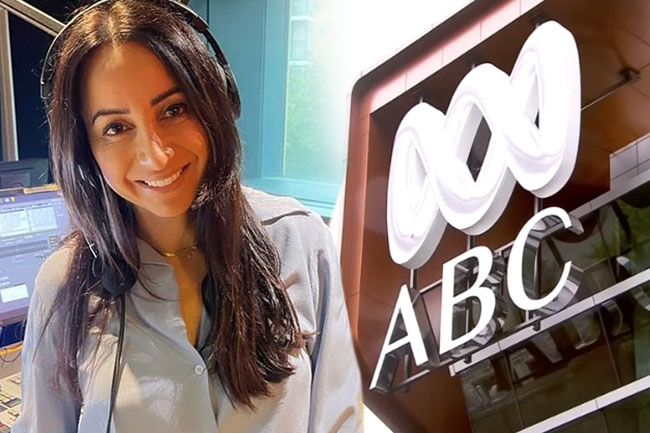The Emma Husar case is evidence not only of the need for a conversation about media ethics but of the lack of respect some journalists display towards their readers, writes Dr Jennifer Wilson.
IT'S ALWAYS a mistake to argue ethics with people who don’t seem to have any.
The fallout from the (former Member for Lindsay) Emma Husar affair continues, with several mainstream journalists attacking independent media and social media commentators over our criticism of BuzzFeed’s decision to publish a leaked, confidential list of allegations against Ms Husar, in the middle of a workplace investigation by the NSW Labor Party.
Nine’s Malcolm Farr called us 'digital idiots'.
Crikey’s Bernard Keane labelled us 'trolls'.
The Guardian’s Paul Karp told us we 'don’t understand' journalism and that our expressions of distaste are 'unhinged'.
It also got personal when The Guardian’s Van Badham called me a 'sheep person'.
Karp also suggested that I just get on with 'feeling my feelings', presumably because, being a woman, he considers I’m not able to think. It’s hardly surprising that someone capable of that comment is also leading the journalistic defence of BuzzFeed’s exercise in slut-shaming, employing a black-letter framing of the situation which boils down to little more than "we did it because we can".
On the whole, an altogether baffling display of journalistic condescension and contempt, as they continue to steadfastly avoid addressing serious questions put to them about the publication of the career-destroying slurs of Husar.
Not only were the allegations of sexual misbehaviour still under investigation when BuzzFeed’s Alice Workman published them, it appears that she did not check with the alleged target, Member for Blaxland Jason Clare, as to their validity. Clare had denied the allegations when asked by Fairfax the week before Workman’s story appeared, so if Workman did check, she suppressed the relevant fact of his denial in her article.
What calibre of journalist publishes allegations, without also publishing the fact of their denial? This is a serious matter — or rather, it would be if there were any concern for the ethics of the situation:
Though the question has been asked of journalists defending this move on Twitter many times, none has addressed this core abuse of journalistic power. What it does demonstrate, however, is that many journalists do not passively regurgitate information (at least, not in this instance) but actively choose which facts they will include in a story and which they will omit. This contradicts Paul Karp’s "Bart Simpson" defence that “It’s all the leaker's fault”:
This was firmly addressed by Victoria Rollison in this tweet:
Workman’s suppression of relevant facts, while breaching the MEAA Journalistic Code of Ethics guidelines, has been catastrophic for Ms Husar. It has arguably done Ms Workman little good, either, as media consumers continue to express outrage at the publication of her story. It is doubtful BuzzFeed and Workman have much interest in ethics or the consequences of their actions for Husar and her children.
It takes a particular type of person and publication to set fire to a family’s life on the basis of shaky allegations of sexual misconduct.
It’s useful to deconstruct what journalists and others who support Workman’s “right” and “duty” to publish are actually demanding.
They are insisting on their right to publish sexual allegations currently under confidential investigation, with no more verification than the word of a complainant, and without the inclusion of denials by the alleged perpetrator and her “target”. Though Karp has described the allegations as 'first-hand evidence', they are not “evidence” at all.
Workman was given untested allegations of disastrously damaging sexual behaviour, allegedly witnessed by the complainant but directed towards someone else. This is not evidence. Karp states that Workman had evidential knowledge when she obviously did not. It is interesting that Karp describes it as such and, in so doing, apparently condemns Husar before the investigation is complete.
Not only are these journalists insisting on the right to publish on the grounds of their “duty” to inform us, they are also demanding that we, their readers, refrain from objection and criticism. In other words, they want us to accept the information they peddle, unquestioningly.
Objections and criticisms are met with abuse, denigration, insult and contempt. There is no possibility of dialogue and interaction here. These journalists will not be questioned.
In this specific case, some journalists are arguing for the untrammelled right to sexually slur a woman. They are demanding the right to slut-shame a female member of the Australian Parliament in “the public interest”. They do not want to be criticised or challenged on this. They want to be able to destroy a woman and her children with allegations of her lewd behaviour, and they do not wish to be held accountable for their actions. Karp claims the journalist is not at fault. That whoever leaked the story to them is to blame. That journalists are mere conduits. That journalists bear no responsibility.
The manner in which some journalists are defending their perceived right to publish salacious slurs against a woman, just because they can, is sickening. There’s little point in engaging with these people.
There’s a much-needed conversation about journalistic ethics begging to be had, but there’s no point in arguing ethics with people who simply don’t seem to have any.
You can follow Dr Jennifer Wilson on her blog No Place for Sheep or on Twitter @NoPlaceForSheep.

This work is licensed under a Creative Commons Attribution-NonCommercial-NoDerivs 3.0 Australia License
Monthly Donation
Single Donation
Support ethical media. Subscribe to IA.











